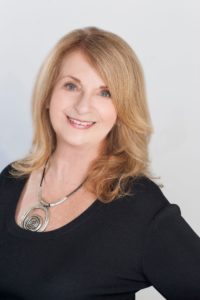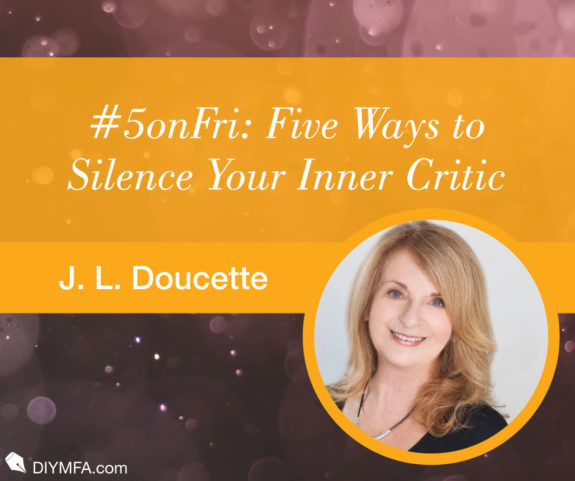Early in my writing career, I won second place for a short story, “When We Leave Here” in a contest sponsored by the Wyoming Writers Association. Encouraged by that recognition, I submitted the first chapter of a novel I’d started to a published author at the conference. After being told “Never start a story with someone waking up in the morning; it’s boring,” my inner critic came out and I stopped working on that novel. It was a long time before I wrote anything again. His critical words landed in a place of insecurity that resulted in a kind of writing paralysis.
Though I set that chapter aside, I never lost interest in the story I wanted to tell. Last Seen, my debut novel, was published by She Writes Press in 2017, many years after that discouraging comment engaged my inner critic.
Along the way, I found encouragement and writing guidance that helped to free me from the effects of too much analysis and self-doubt in the writing process.
Here are the writers and the wisdom and methods they offer that helped me silence my inner critic and stay in creative writing mode, presented in the order I found them.
1. Ernest Hemingway
“All you have to do is write one true sentence. Write the truest sentence you know.”
Whenever I feel uncertain about the next decision to make in the narrative or how to solve a plot problem, I abandon the idea of the big picture of the novel and follow this advice.
When we shift into analytical thinking, we leave the right brain and the fluidity of creative thought and access the left brain’s linear process. While essential to the editing phase of written work, the left brain’s contribution to the finished product shuts down creativity. It’s impossible to be in two places using two different functions at the same time.
When you don’t know where your story is going, or how it will all come together, stay right where you are and write one true thing.
2. Natalie Goldberg
“If you are not afraid of the voices inside you, you will not fear the critics outside you.”
In Writing Down the Bones, Goldberg suggests that writers develop what she calls a “writing practice of daily journal writing which functions much like a meditation practice.” This kind of writing increases focusing and attention and being present to what is arising in the mind. In this free-writing experience, the writer gains access to emotional truth and clears the way for the authentic voice to show up in fiction writing.
In Wild Mind she takes this idea further. “Writing practice brings us back to the uniqueness of our own minds and an acceptance of it. We all have wild dreams, fantasies, and ordinary thoughts. Let us feel the texture of them and not be afraid of them. Writing is still the wildest thing I know.”
3. Julia Cameron
“It is impossible to get better and look good at the same time.”
After experiencing major setbacks in her screenwriting career—three screenplays scheduled for production canceled at the same time—Cameron experienced extreme self-doubt and writer’s block. After months of not being able to write, she decided to write without any plan or project in mind. Through the process of unplanned writing, she freed herself from the inner critic that blocked her creativity.
In the Artist’s Way, Cameron recommends a 20-minute writing routine she calls The Morning Pages, which involves writing three pages longhand, using stream of consciousness and free association. The writer never goes back to edit the pages and the subject doesn’t matter.
If nothing comes to mind, Cameron encourages writing, “I can’t think of anything to write.”
The point is to keep the hand moving and in the process to clear away your inner critic and the other defenses that stand in the way of imagination and creativity.
4. Chris Baty
“Fiction writing can be a blast when you set aside debilitating notions of perfection and just dive headlong into the process.”
In July 1999, Baty and twelve writer friends, recognizing that unfinished novels are often the result of writer’s crippling inner critic, came up with an idea to bypass the internal editor. They challenged themselves to write a 50,000 word draft of a novel in just 30 days.
In writing this way, giving free rein to creativity with no attempt to correct or edit was liberating for them and resulted in twelve first drafts.
Later Baty opened the challenge to others and created National Novel Writing Month. Shortened to NaNoWriMo it has become a worldwide online event celebrated each November.
I discovered Baty’s book, No Plot, No Problem in 2009 and wrote the first draft of Last Seen in November of that year. My other book, On A Quiet Street, published in 2019, was a 2012 NaNoWriMo project, and Unknown Assailant, published in 2021, was a NaNoWriMo first draft in 2014.
5. Pat Pattison
“The proof of your uniqueness lies in the sense memories you’ve been storing all your life.”
For the last two years, I’ve been co-writing lyrics with a musician friend. It’s a whole new world for me and I found direction from Berklee College of Music professor, Pat Pattison, author of Writing Better Lyrics: The Essential Guide to Better Songwriting.
Pattison developed a technique he calls Object Writing, a ten-minute exercise done in the morning, which involves picking a random object and using all five senses to describe it. Diving into sense memories will enliven the writing process with the felt experience of the writer and allow the reader to feel emotionally connected to the material.
Although I’ve listed five different tips for freeing your writing from the excessive oversight of your inner critic, they all draw on the same concept. Writing is a creative process. Creativity happens in a free mental space. Write with wild abandon and be surprised by what you have to say.
Tell us in the comments: How do you silence your inner critic?

J.L. Doucette’s suspenseful first novel won the 6th Annual Beverly Hills Book Award for Mystery in 2017, the Silver Award from Independent Press for Mystery, and was a finalist in the Next Generation Book Awards. She creates fictional characters with depth and complexity that the reader can relate to easily. She lived in rural Wyoming where she encountered the stoic nature of people living in small towns and on the Wind River Reservation. Her novel, Unknown Assailant: A Dr. Pepper Hunt Mystery, was published in 2021.
You can find her on her Website, or follow her on Facebook, or Twitter.







